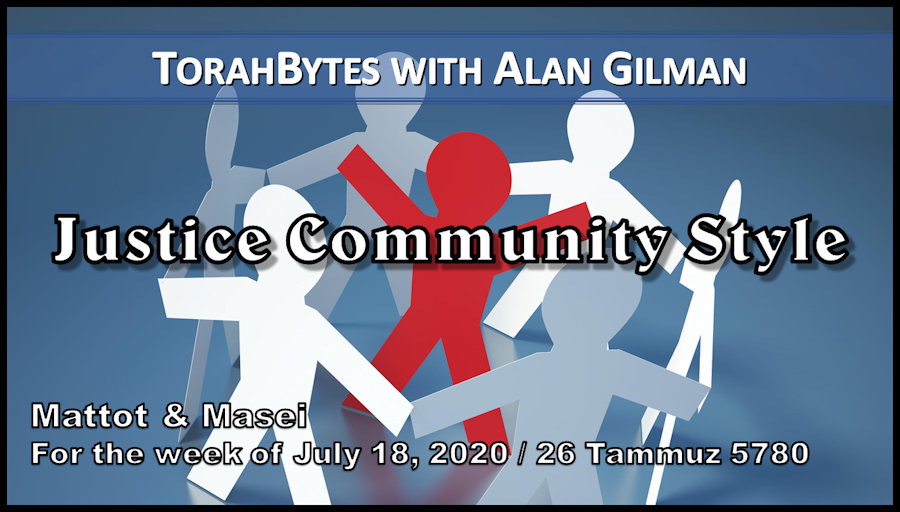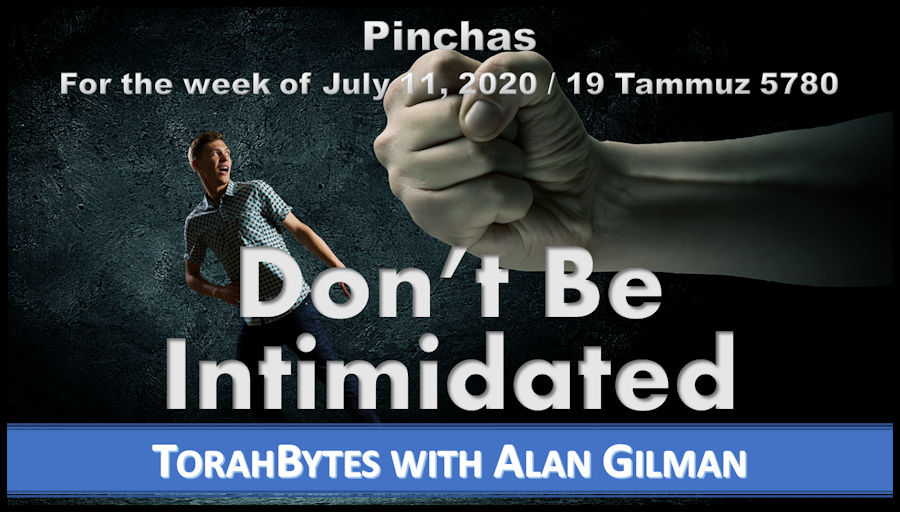For the week of July 18, 2020 / 26 Tammuz 5780
Mattot & Masei
Torah: B’midbar/Numbers 30:2 – 36:13
Haftarah: Jeremiah 2:4-28; 3:4
Download Audio [Right click link to download]
And the congregation shall rescue the manslayer from the hand of the avenger of blood, and the congregation shall restore him to his city of refuge to which he had fled, and he shall live in it until the death of the high priest who was anointed with the holy oil. (B’midbar/Numbers 35:25)
The casual reader of the Hebrew Scriptures may be struck by the amount of violence found therein. Between plagues and wars, vengeance and judgement, it can seem as if one could hardly turn a page without someone or thousands of people dying. Those more familiar with the Bible should know that this is an exaggeration, but I wouldn’t blame anyone for getting that impression. One must pay close attention to catch that even in the most graphic of bloody situations, there is so much good to glean. Take this week’s Torah reading for example. We read here how Israel was to annihilate much of the Midianite population. This act of judgement and the reasons for it are difficult for many of us today. But that’s not what I want to discuss this week.
Further on in the portion we read about the cities of refuge. God directed Israel to establish several of these throughout the land for people directly involved in an alleged murder. It was the responsibility of a close relative of the deceased to avenge murder. Our translation obscures that the word for the avenger is ga-al, the same as “redeemer” in other contexts. A person responsible to restore impoverished relatives (as was Boaz in the Book of Ruth), may be called upon to do justice by way of executing a relative’s murderer. Either way, they are functioning as the ga-al.
There are two highly instructive elements for us today in God’s directives through Moses with regard to alleged murder. I want to look at the second one first, which is not part of the verse I quoted at the beginning. Verse thirty of chapter thirty-five reads: “If anyone kills a person, the murderer shall be put to death on the evidence of witnesses. But no person shall be put to death on the testimony of one witness.” More than one witness had to testify that they actually saw the murder. This implies that a process had to occur. The ga-al was not permitted to react to impressions but had to wait for the fact of the matter to be established by at least two witnesses. This is one of the reasons why “Don’t bear false witness” is in the Ten Commandments (Shemot/Exodus 20:16). God deemed making sure of the facts in such a case was of utmost importance. Second, God himself was willing to risk the guilty going free. Protecting the innocent in the face of the demand for vengeance was essential – so essential that cities were established to provide protection to accused murderers.
Now to the verse quoted at the beginning. Note that the responsibility for protecting the accused was given to the community. Israel was a people taught by God to do justice. I discussed this a couple of weeks ago in my message Formula for Change, as I considered the words of the prophet Micah: “He has told you, O man, what is good; and what does the LORD require of you but to do justice, and to love kindness, and to walk humbly with your God” (Micah 6:8). Israel was to do justice but love kindness (Hebrew: hesed). While we need to seek to establish justice, our hearts must remain kind even to the accused until it is made abundantly clear that the alleged wrong was done. Until then it is the community’s responsibility to protect even those accused of the most heinous of crimes from uncontrolled vengeance.
If these are God’s protections for those accused of (what we would call) first-degree murder, how should we treat people accused of or rumored to have committed lessor crimes or other alleged repulsive acts. Are we to destroy people’s reputations on social media as a way to vent our anger and perhaps signal to the world that we are virtuous for doing so? That’s not the community’s job. If we really cared about justice, we would realize that we all benefit from going to great lengths to protect the accused until due process has taken place and the facts are fully determined. Then and only then can the appropriate consequences be applied in such a way that is truly just and beneficial to everyone.
Scriptures taken from the English Standard Version

